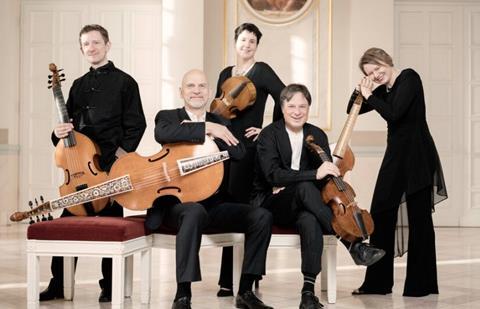Peter Quantrill gives his thoughts on the concert of Byrd and Bach at London’s Wigmore Hall on 11 October 2023

William Byrd died in 1623, and quatercentenary celebrations have fallen largely to vocal ensembles, but the composer’s consort music is no less harmonically rich, contrapuntally intricate and deserving of attention beyond the ascetic confines of the recording studio. The slightest tremor of vibrato to the opening subject of the Fantasia a 6 (II) hinted at how far performance of this music has moved on even since the heyday of Fretwork in the 1990s.
Even if viol consorts still take as long to tune up between pieces as they do to play them – the intrinsic exigencies of instruments destined to be supplanted by more reliable replacements – the interpretations of Phantasm admit all the variety of style and articulation we expect from modern chamber ensembles in Haydn, while supported by the virtues of solid intonation and ensemble that were foreign to consort performances half a century ago. The gentle glow of Christe qui lux es filled the hall like summer-Evensong light. Bolder still was the idiomatic adoption of two movements from the Mass for Four Voices.
The second half brought more ingenious transcriptions, this time of Bach. Without pressing hard on suspensions, Phantasm underlined the point at which the Ricercar a 3 from The Musical Offering goes off the rails. Adding parts one by one through chorale fantasias and fugues, Phantasm arrived at the summa of Baroque counterpoint which is the Ricercar a 6, here not weighted with anachronistic pathos but extrovert and tingling with the inner drama of its workings.
PETER QUANTRILL











































No comments yet